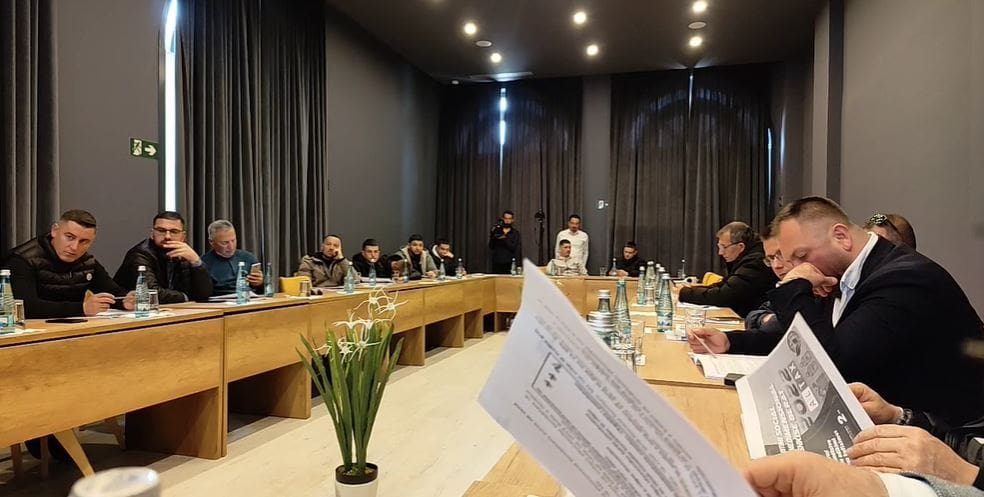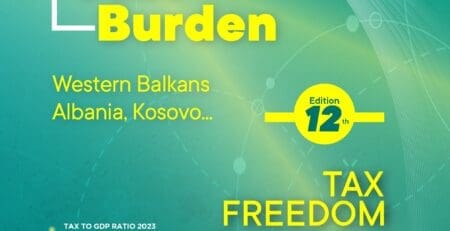The first meeting in Berat for the presentation of diagnostics of the economy, politics, and social problems according to the social audit
Today, we started the tour of the second year of the project “Social monitoring through citizen interaction” with Berat and its citizens, who have given us their valuable opinions about the material and its accuracy related to local government policies.
In the report that we presented according to its main parts, we highlighted some unique facts about Berat, its economy, local politics and the openness of governance, conveying the citizen’s voice through dedicated expertise, as well as some key points related to the progress of the sectors and the investments that are made from the state and local budget during 2022, but also for the period 2023-2025.
From the findings that come as a result of comparing the official data on GDP, as well as starting from their historical analysis in the last 5 years, it is observed that the indicators of the local economy remain at levels that have had slow progress. This is influenced both by the lack of diversification of the economy into more dynamic and expanded businesses over the years, the low level of credit, the reduction of the supply of employees, the skills of employees not properly matched with market requirements, but also by the regulatory quality, which poses challenges for governance at both levels.
Meanwhile, the access to and ability with technology for Albania, including your Municipality, ranks last in the region, along with the low value of productivity from exports.
The level of local economic productivity based on agriculture indicates a need for change in the main local policies on which the budget and sustainable development are oriented, based on SKZHIE II and III[1] orienting capital investments, technical capacities, human resources and logistics along with the regulatory framework and fiscal policy.
In the in-depth discussion about the reasons for migration and emigration, as well as addressing its solutions, we presented to the public the argument that national and local sectoral strategies in preventing migration and promoting the offer of employment[2] should be activated through policies local.
The local policy seems to be based on the law on consultation by implementing the consultation calendar, as an obligation for open governance and budget discussion processes with public participation. In the stages of consultation, there is no confrontation and invitation for civil expertise. This was also confirmed by the participants, but it also serves us as a reinforcement of the answers that the citizens gave us in the Survey made this beginning of the year.
The Transparency Program, an obligation to implement, is still not fulfilled in many of its components, although it is on the official website of the municipality as a program.
Information on the organizational structure and operation of the municipality is presented with high transparency
This fact eases the burden of accountability based on analyzes and trends, and there is no opposition or analytical reinforcement of the citizen’s voice and concerns, a situation that is also found to be lacking in the municipality’s staff.
ALTAX has requested that this consultation be based on the amendment of the law on public consultation. ALTAX will repeat the request to the Municipal Council that during the public consultation until the legal change, a session/s with the local civil expertise based on studies/analyses and facts can be programmed within the Consultation Calendar.
As it relates to urbanization, the environment, the situation of energy and water supply, as well as the services related to waste management, it seems that there is still a lot to be done, where in the report some addresses are also given as detailed points that we propose to the municipality and the Municipal Council.
Agriculture as the dominant sector with 50.17% of the entire economy of Berat is the sector that does not have the necessary support, as well as an assistance that should be more complete in contrast to other municipalities, for the very specifics that we mentioned in the meeting and argued in detailed access to the report.
At the end of the presentation, we laid out the need for an awareness of the difficult situation for income and meeting expenses, as well as the need for an approach that should reflect fundamental changes at the time when the new Municipal Councils will be established.
[1] https://konsultimipublik.gov.al/documents/RENJK_538_Draft-Strategjia-Kombetare-per-Zhvillim-dhe-Integrim-2021–2030-.pdf, faqe 5
[2] according to the 2021 budget implementation monitoring reports and the actual 2021 budget report, received in the Municipality




Leave a Reply
You must be logged in to post a comment.